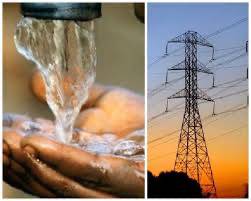Can Ghanaians Bear Another Increment in Water and Electricity Tariffs?
Ghana is at a critical juncture as it grapples with the prospect of increasing tariffs on water and electricity. For many citizens, the implications of such increments extend beyond mere financial strain; they touch on the very essence of daily living, economic stability, and overall quality of life. As the government weighs the necessity of these increases against the backdrop of a struggling economy, the question arises: can Ghanaians bear another increment in utility tariffs?
The Economic Context
The economy of Ghana has faced numerous challenges in recent years. Inflation rates have surged, significantly impacting the purchasing power of the average citizen. According to the Ghana Statistical Service, inflation reached levels that have historically strained household budgets, with food and energy prices being the most affected. This context raises legitimate concerns about the timing of any tariff increases.
The utility companies, on the other hand, argue that the increments are essential to ensure sustainability and continued service delivery. The Electricity Company of Ghana (ECG) and the Ghana Water Company Limited (GWCL) often cite rising operational costs, including maintenance and infrastructure development, as justifications for tariff hikes. With an aging infrastructure and increasing demand for services, the pressure to raise tariffs is palpable.
Impact on Households
For many Ghanaians, the proposed increments in tariffs could exacerbate already precarious living conditions. A significant portion of the population lives below the poverty line, and for these households, even minor increases in utility bills can have devastating effects. Basic necessities such as food, healthcare, and education compete for a limited budget, making it increasingly difficult for families to absorb any additional costs.
Moreover, there is a psychological burden associated with constant price hikes. The public's trust in the government and utility providers is eroded when citizens feel they are continuously asked to pay more without seeing commensurate improvements in service delivery. Instances of prolonged outages and inadequate water supply have left many Ghanaians frustrated and disillusioned, leading to growing public outcry against further tariff increases.
The Role of Government
The Ghanaian government finds itself in a challenging position. On one hand, it must consider the financial viability of utility providers to ensure consistent and reliable service. On the other, it must safeguard the welfare of its citizens. This balancing act is further complicated by the political implications of any tariff hike.
Public opposition to tariff increases often translates into political fallout. Citizens remember past promises made by elected officials regarding infrastructure improvements and service delivery, and they are quick to mobilize against perceived injustices. The government must navigate these turbulent waters carefully, ensuring that any decision is accompanied by transparent communication and, ideally, tangible improvements in service.
Possible Solutions
While the need for tariff increases may seem inevitable, there are alternative approaches that could alleviate the burden on consumers. One potential solution is to implement a tiered pricing structure that protects lower-income households while placing a heavier burden on higher usage. This could ensure that essential needs are met without placing undue stress on the most vulnerable segments of the population.
Additionally, investing in renewable energy sources and improving efficiency within the current energy supply chain could reduce long-term costs. Expanding access to solar energy, for example, could lessen dependence on traditional grid systems, ultimately leading to lower overall utility costs for consumers. The government can also encourage public-private partnerships to modernize infrastructure and enhance service delivery.
Public Sentiment
Public sentiment regarding potential tariff hikes is complex. While many understand the necessity for increases to ensure sustainability, the prevailing mood leans toward skepticism. The economic burden on average citizens is palpable, and there is a sense of fatigue regarding the repeated demands for higher payments without visible improvements in service quality.
Citizens are calling for accountability and transparency from utility providers and the government alike. They seek assurance that any increases will translate into better services rather than simply serving as a stopgap for deeper systemic issues.
Conclusion
As Ghana faces the possibility of further increases in water and electricity tariffs, the question of whether citizens can bear the burden remains open-ended. The economic context, the impact on households, and the role of government all intertwine to create a complex situation. While the need for sustainability in utility services is clear, the challenge lies in ensuring that the burden of these increases does not disproportionately affect the most vulnerable Ghanaians.
Ultimately, any decision made should not only consider the financial viability of utility companies but also prioritize the welfare of the citizens they serve. A balanced approach that incorporates public input, alternative solutions, and accountability could lead to a more equitable resolution that allows Ghanaians to bear the costs without further compromising their quality of life.


